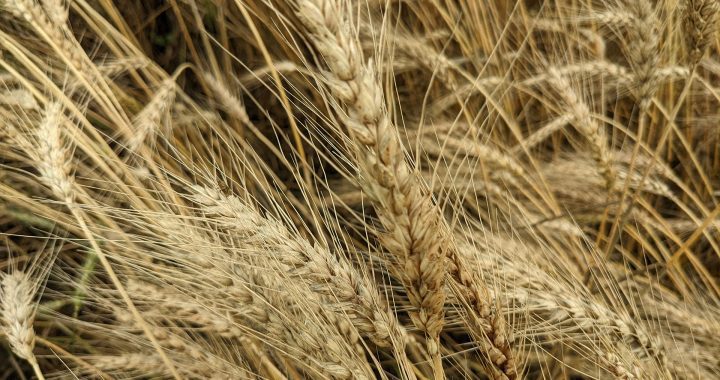On Wednesday, hundreds – possibly thousands – of Indigenous Peoples and their supporters gathered in Trois-Rivieres to mark the official end of the “Echaquan commission”, the coroner’s inquest examining the issue of systemic racism in Quebec’s health care system.
For Manawan Chief Paul-Emile Ottawa, the peaceful march towards the Trois-Rivieres courthouse was the perfect occasion to usher in what he feels is a new era for Indigenous rights.
“Starting now, today – this is day one of the end of racism,” Ottawa told APTN News.
“It’s day one of the beginning of justice for everyone in Quebec. That’s how we want to live this day.”
The inquest concluded with lead coroner Géhane Kamel promising her final recommendations would be “honest” and would form the foundation of a social pact declaring “never again.”
The coroner said there was a duty to rewrite the story of Echaquan, a 37-year-old Atikamekw mother of seven who filmed herself on Facebook Live as a nurse and an orderly were heard making derogatory comments toward her shortly before her death last September at a hospital in Joliette, northeast of Montreal.
Shortly after the hearings ended in Trois-Rivieres, a large march in memory of Echaquan made its way to the courthouse where the inquest was held, with local police estimating the crowd at more than 1,000 people.
“There are a lot of people from the lower Cote-Nord region [of Quebec] who came. The Anishinaabe from Abitibi as well,” said Sipi Flamand, Manawan’s vice-chief and the organizer of Wednesday’s march. “A large part of the Atikamekw Nation is here, and I think there’s going to be more.”
Nathalie Gabriel, a councilor from the Innu community of Matimekush Lac-John near the Quebec-Newfoundland border said, “we did two days to get here. We took a train and a car. It’s very important for us to be here with [the Atikamekw nation] because it’s an important case. And we have to stop it.
“I am afraid because I am Innu. I am afraid for the kids – I’m afraid for them.”
Josianne Napish, vice-chief of the Innu community of Ekuanishit, told APTN they had to hold a random lottery to determine who could attend the march.
Carrying the flag for the Innu nation, Napish had a firm message for Quebec Premier Francois Legault and his constituents.
“I’m asking the government to recognize systemic racism everywhere – in the hospital system as much as in youth centres,” Napish said. “[It’s] everywhere. Everywhere.”
Ghislain Picard, chief of the Assembly of First Nations Quebec-Labrador, agreed.
“There’s at least one expert who came forward and said the death of Joyce Echaquan could’ve been prevented. I think that’s the key – the key piece in this long three weeks of testimonies,” Picard said.
“The situation at Joliette is not an isolated situation. It goes far beyond Joliette, and really, I think it’s in the hands of the government now to take action.”
The inquest heard that Echaquan died of excess fluid in the lungs likely caused by heart failure, but doctors had wrongly diagnosed her as suffering from opioid withdrawal when she arrived complaining of severe stomach pains.
Lawyers representing several parties taking part in the inquest made final arguments to the coroner, who is tasked with drafting recommendations to avoid a similar death.
A lawyer representing the regional health board said it recognizes there is bias and discrimination toward Indigenous patients among staff, whether it’s conscious or not, and it is ready to change the situation.
The lawyer representing the Atikamekw Nation and the band council in Echaquan’s community of Manawan, about 250 kilometres north of Montreal, said the numerous failings in the treatment she received were related to systemic racism in the health-care system.
Jean-Francois Arteau decried a lack of accountability and noted evidence that Echaquan was ignored by staff. He surmised she would still be alive if she weren’t Indigenous.
Patrick Martin-Menard, lawyer for the Echaquan family, told the inquiry it was important to remember Echaquan as more than someone seen suffering in a widely-circulated video.
“She was devoted to her family and had all sort of plans,” Martin-Menard said. “She had her life before her, and I think it’s important to see Ms. Echaquan from this vantage point and not simply as a patient.”
In a closing message, Kamel thanked those who participated in a process that included difficult moments. She addressed Echaquan’s family and in particular her husband, Carol Dubé, who’d asked Tuesday how he would explain to his children their mother’s death.
“To your children, you will have to tell them the small revolution of reconciliation started with their mother,” Kamel said.
Dubé did not plan to speak at Wednesday’s rally, but when prompted by reporters, he said he was moved by the “energy” of the crowd.
“Thank you for all your support,” Dubé said.
APTN reached out to the Quebec coroner’s bureau to find out when the official inquiry report will be released.
In their response, a bureau spokesperson said it is “difficult to predict when the report will be released to the public.”
-With files from Sylvie Ambroise and the Canadian Press









